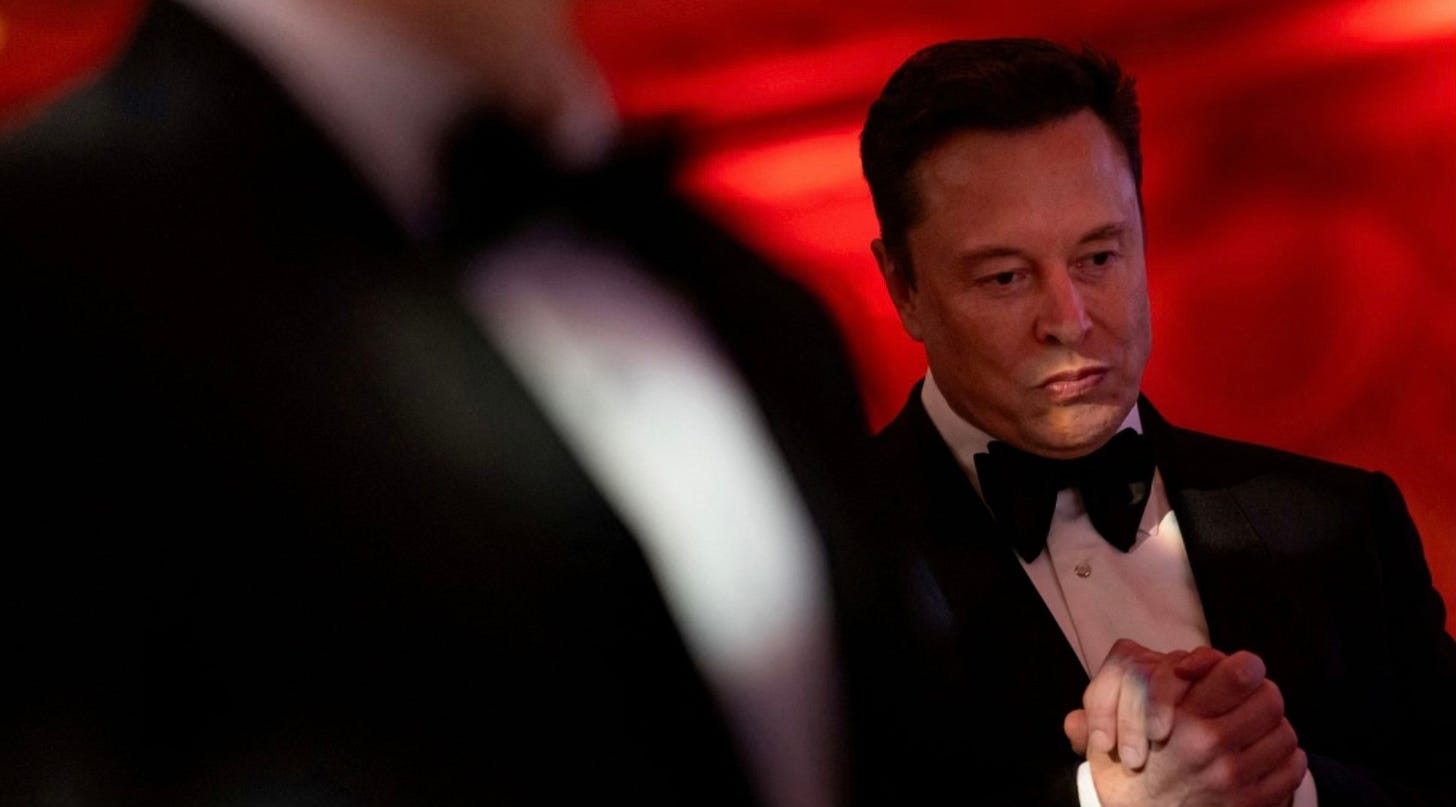In recent years, the political landscape has witnessed a remarkable transformation in the stance of one of tech's most prominent figures. Elon Musk, once perceived as a centrist innovator pushing the boundaries of electric vehicles and space exploration, has increasingly aligned himself with far-right political groups and figures across the globe. This shift, while shocking to some, has unfolded through a series of deliberate moves, reshaping his public image and leaving both critics and supporters debating the motivations behind his actions. Why would a man celebrated for his visionary contributions to technology and space exploration venture into the murky waters of far-right politics? What does he stand to gain, and what are the broader implications of his political pivot?
Musk’s journey from a tech innovator to a political figure closely aligned with far-right ideologies is not simply a story of personal evolution. It’s a calculated strategy that intertwines his personal beliefs, business interests, and a broader ambition to shape global political discourse. By examining his actions and alliances, it becomes clear that this alignment is not a mere consequence of ideological drift but a purposeful pursuit of influence and control. From his criticisms of ‘woke culture’ to his outspoken opposition to government regulations, Musk’s political posturing reflects a narrative that appeals to conservative and libertarian ideologies worldwide.
Adding fuel to the debate is the trending term ‘President Musk,’ suggesting that Musk wields far greater influence than his public statements imply. The idea that Musk is the real power behind Trump’s 2024 re-election—a claim Trump himself felt compelled to publicly deny in December 2024—underscores the perception of Musk as a kingmaker whose political clout extends far beyond mere endorsements. This growing narrative reflects both the public's fascination and concern with Musk's outsized role in shaping political outcomes.
The implications of this shift go beyond Musk’s personal brand. As one of the most influential figures of the 21st century, Musk’s actions ripple through industries, political systems, and public discourse, shaping the world in ways few individuals can. His growing ties with far-right movements, both in the United States and internationally, have raised critical questions about the role of tech billionaires in democracy and the consequences of concentrating media and political power in the hands of a few.
This article explores the evolution of Elon Musk’s political stance, the mechanisms through which he wields his influence, and the tangible benefits he derives from his alignment with far-right ideologies. It also delves into the broader societal consequences of his actions, offering a comprehensive examination of how one man’s ambitions intersect with the political currents shaping our era.
The Evolution of Musk's Political Stance
Musk's political journey represents a dramatic rightward shift. During the 2016 election cycle, he positioned himself as a moderate, even expressing support for Hillary Clinton's campaign. However, his trajectory took a sharp turn during Trump's presidency. Initially maintaining a cautious distance while serving on Trump's business advisory councils, Musk gradually began showing signs of rightward movement (Oremus, 2021).
By 2020, his positions had notably shifted, particularly regarding government regulation and social issues. His criticism of ‘woke culture’ became more pronounced, and his public statements increasingly aligned with conservative talking points (Conger and Isaac, 2020). This evolution accelerated during the COVID-19 pandemic, which marked a decisive turning point in Musk's political stance. His opposition to public health measures, particularly regarding Tesla's Fremont factory operations, revealed a deeper ideological shift (Kolodny, 2021). Initially framing his resistance in terms of workers' rights and economic necessity, Musk's rhetoric quickly evolved into broader opposition to government authority and public health mandates.
His vocal criticism of lockdown measures positioned him as a prominent voice in the anti-restriction movement. Describing COVID-19 restrictions as ‘fascist’ and questioning the scientific consensus, Musk aligned himself with right-wing narratives that prioritized economic interests over public health measures (Conger and Isaac, 2020). This period marked his transition from occasional political commentary to active political engagement, culminating in his full-throated support for Trump's 2024 campaign.
Beyond American politics, Musk has cultivated relationships with far-right figures globally. He's voiced support for Germany's Alternative für Deutschland (AfD), aligned himself (and has supposedly offered significant financial support to the tune of $100 million) with Nigel Farage's Reform UK party, and expressed admiration for Italy's Giorgia Meloni (Erlanger, 2024). This international network of far-right connections suggests a deliberate strategy rather than mere political convenience.
Platform and Power: The Digital Pulpit
Musk's command of social media platforms, particularly X (formerly Twitter), demonstrates unprecedented influence in shaping political discourse. The trending term ‘President Musk,’ which implies that Musk wields immense power in shaping U.S. politics, underscores the perception that he is more than just a behind-the-scenes player. This raises questions about whether Musk sees himself as a future U.S. president or if he prefers to exert influence as a kingmaker, avoiding the direct scrutiny of elected office. With over 200 million followers and carefully curated connections, his platform serves as a powerful amplifier for far-right messaging. Since joining in June 2009, he has transformed his social media presence from a tech-focused channel into a political megaphone (Smith, 2023).
His strategic following choices suggest an attempt to present himself as connected to both ideological movements and public service sectors. The platform's metrics reveal his extraordinary reach: posts regularly generate tens of thousands of comments and millions of views. His ownership of the platform itself adds another layer of influence, allowing him to shape content moderation policies and algorithmic amplification in ways that benefit his political agenda (Newton, 2023). This raises further questions about how positive narratives about Musk trend on X. Are these trends natural phenomena driven by the platform's user base, or could they be orchestrated to craft a favourable public image and reinforce Musk’s power?
The Rhetoric of American Exceptionalism
Musk's political messaging increasingly employs themes of American exceptionalism and meritocracy. His declarations about America's rise to greatness through meritocracy reveal a carefully constructed narrative that justifies wealth concentration while opposing government intervention (Greenfield, 2023). This messaging strategy serves multiple purposes:
1 It positions him as a defender of traditional American values, appealing to conservative audiences.
2 It frames any opposition to his business interests as attacks on American greatness itself.
3 It suggests that his own wealth and success are purely products of merit rather than systemic advantages or inherited privilege.
His dramatic pledges to ‘fight to my last drop of blood’ for freedom and opportunity employ classic nationalist rhetoric, positioning himself as a patriotic warrior rather than a self-interested billionaire. This messaging resonates particularly well with far-right audiences who view traditional power structures as under threat from progressive reforms.
Motivations Behind the Alignment
Musk's support for far-right entities reflects a sophisticated strategy combining business interests and ideological positioning. His enterprises—Tesla, SpaceX, and X—operate in heavily regulated industries where government oversight can significantly impact profitability. Far-right administrations typically advocate for deregulation and pro-corporate policies, offering Musk's companies greater operational freedom and reduced compliance costs (Erlanger, 2024).
The potential for favourable tax policies represents another significant motivator. Far-right parties consistently support tax cuts for corporations and high-net-worth individuals, directly benefiting Musk's financial interests. His companies also stand to gain from government contracts, particularly SpaceX's relationship with military and space agencies (Greenfield, 2023).
Beyond immediate business interests, Musk's acquisition of Twitter (now X) provided him unprecedented control over public discourse. The platform's transformation under his ownership reflects his political ideology, with changes to content moderation policies and algorithmic amplification favouring right-wing perspectives (Newton, 2023).
Consequences for Society
The concentration of power in Musk's hands raises profound concerns about the integrity of democratic institutions and the health of public discourse. Musk’s ability to wield influence is not limited to his technological achievements but extends deeply into shaping political narratives. By owning and controlling a platform as influential as X, Musk has the power to prioritize specific ideologies and suppress dissenting voices, effectively amplifying far-right narratives under the guise of free speech.
The resulting polarization is not incidental but systemic, as Musk’s policies on content moderation and algorithmic amplification deliberately elevate divisive ideologies that align with his personal and corporate interests. This has normalized extreme political positions, creating a feedback loop where fringe movements gain legitimacy through repetition and visibility on his platform. The transnational reach of this influence exacerbates these dynamics, exporting far-right ideologies to regions where democratic norms are already fragile.
Moreover, Musk’s financial and public support for far-right parties in Europe, such as Germany’s Alternative für Deutschland (AfD), has tangible consequences. His ability to channel resources into these movements raises ethical questions about the accountability of billionaires in global politics. By aligning himself with these groups, Musk not only reshapes domestic policies but also destabilizes international relations by encouraging nationalist and isolationist agendas.
The broader societal implications are alarming. As Musk continues to consolidate power across technology, media, and politics, the checks and balances that underpin democratic governance are increasingly undermined. The normalization of this concentration of power sets a precedent for future tech magnates, further entrenching an era where unelected individuals hold outsized influence over public policy and discourse.
Conclusion
Elon Musk’s alignment with far-right political groups is not merely a shift in ideology but a masterstroke of strategy. The term ‘President Musk,’ while dismissed by its namesake, encapsulates the troubling reality: Musk wields unprecedented power to shape both political and economic landscapes. His ability to influence elections, shape narratives, and amplify divisive ideologies challenges the very foundations of democracy.
This alignment has undoubtedly brought Musk tangible benefits, from regulatory relief to enhanced political capital. Yet it also serves as a wake-up call for societies grappling with the unchecked power of tech magnates. As Musk continues to expand his reach, the question is no longer what he will do next but whether democratic institutions can withstand the force of his ambitions.
The world stands at a crossroads. Allowing unchecked power to concentrate in the hands of individuals like Musk risks eroding the democratic principles that underpin modern governance. Vigilant scrutiny, robust oversight, and collective action are no longer optional—they are imperative to preserving the integrity of democracy in the 21st century.
References
Conger, K. and Isaac, M. (2020). Elon Musk’s Tweets Add Fuel to Pandemic Debate. The New York Times. Available at: https://www.nytimes.com [Accessed 28 Dec. 2024].
Erlanger, S. (2024). The Global Rise of Far-Right Alliances. The Guardian. Available at: https://www.theguardian.com [Accessed 28 Dec. 2024].
Greenfield, R. (2023). Musk and Meritocracy: A Closer Look. Financial Times. Available at: https://www.ft.com [Accessed 28 Dec. 2024].
Kolodny, L. (2021). Inside Tesla’s Factory Disputes During COVID. CNBC. Available at: https://www.cnbc.com [Accessed 28 Dec. 2024].
Newton, C. (2023). Elon Musk’s Media Empire. The Verge. Available at: https://www.theverge.com [Accessed 28 Dec. 2024].
Oremus, W. (2021). How Elon Musk Became a Political Force. The Washington Post. Available at: https://www.washingtonpost.com [Accessed 28 Dec. 2024].
Smith, A. (2023). The Amplification of Political Narratives on X. BBC News. Available at: https://www.bbc.com [Accessed 28 Dec. 2024].






